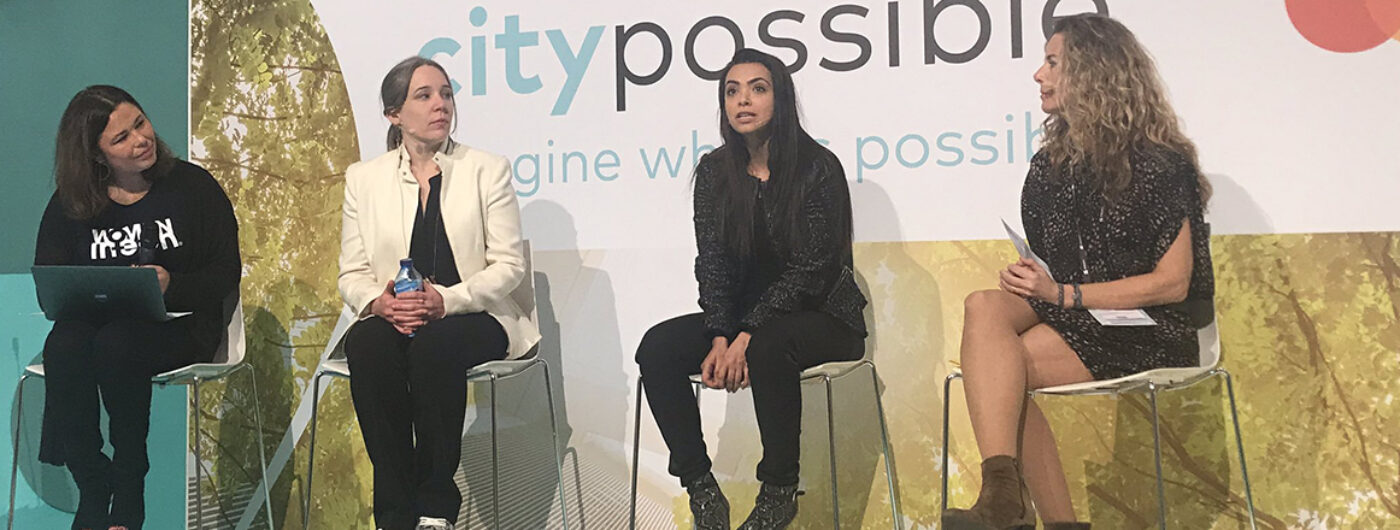
The UfM Women Business Forum gathers women entrepreneurs to promote the role of women in the circular economy and in tech and innovation
19-21 November 2019. The UfM Women Business Forum 2019 took place in Barcelona on 19-21 November within the margins of the Smart City Expo World Congress. It convened women entrepreneurs, national women business organizations, international leading organizations and business support schemes from the Euro-Mediterranean region to share knowledge and ideas on various business opportunities, good practices and innovative and successful business models. This year’s forum focused on promoting the role of women in the circular economy and in tech and innovation.
During the roundtable on Women in the Circular Economy, challenges and opportunities for women in the Euro-Mediterranean region were discussed and different business models were presented. Circular economy models are complex and require the mobilization and participation of partners from different sectors such as public administration, academia, civil society and the private sector. Communication is also needed to raise awareness among different stakeholders about the importance of the circular economy, and labelling is very relevant in order to identify and give greater visibility to companies and organisations applying these circular models. Panelists mentioned the importance of public regulation and incentives to facilitate the development of the circular economy and the promotion of dialogue between private companies and public organisations. One of the main barriers for women is access to finance, namely lack of available finance and lack of loans. Political support is needed to help women access finance and grow their business. The speakers pointed out that advancements in technology can benefit women by making access to finance faster, more efficient, and reducing gender bias.
The speakers highlighted the need for more coaching and capacity building to promote women-led businesses as they often struggle to sell their business ideas to investors. Acceleration programmes that help build capacity are important as well as platforms or networks which can help women build partnerships. Quotas for women can also be helpful as long as they go hand in hand with education.
In the session tackling access to finance, speakers emphasized the need for economic incentives, not just cutting taxations, but providing incentives for large enterprises when they incorporate smaller businesses led by women. Efforts should be made by large private companies to increase the number of their women in their supply chain. Public procurement can also play a role by giving preferential treatment to women led SMEs for public contracts.
During the roundtables on Women in Tech & Innovation, speakers underlined the need to attract more women to the sector. The 4th industrial revolution and the automatisation of many processes could entail the loss of many jobs currently carried out by women therefore it is essential to attract more women to tech and innovation and prepare them for new jobs.
The panelists explained that more needs to be done in order to make job descriptions more appealing to women. There is also a need for more women on the selection panels for jobs. Young girls (from the age of 7 or 8) should be encouraged to choose science and technology as a career path by showing them STEM can be a way to help society. Women role models and mentors are also an important to inspire young girls and to provide a support network for women who decide to enter the sector.
At a political level, the speakers suggested that governments should partner with companies and organisations in the field of technology and use their communication skills to facilitate platforms that allow partnerships between them. The panelists also addressed the issue of access to finance for women in tech and innovation and highlighted that investors can be biased by the male style of pitching; it is necessary for investors to be trained to see beyond the style and look for value in the ideas.
Participants also had the opportunity to participate in two site visits to local start-ups in Barcelona. The companies chosen for this edition were Eco Baula, a socially responsible company which makes eco-friendly cleaning products, and Back-to-Eco, a women-led fashion business with a circular economy model. The attendees met the founders and had a guided tour of their premises to learn about their business models and products.
The event took place in conjunction with the Smart City Expo World Congress, organised by La Fira de Barcelona, with the support of the Regional Activity centre for Sustainable Consumption and Production, the Interreg MED Green Growth network and Acció (Generalitat de Catalunya) and with the financial Support of the Swedish International Development Cooperation Agency (SIDA).
Download the EVENT REPORT here.

